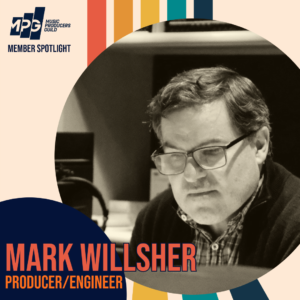
Please tell us a bit about your musical background. How did you get started in the music industry? What was your pathway to your current role?
I got interested in and started having trumpet lessons at age 12. I spent most of my teenage years playing in local jazz groups, concert bands, and the local youth orchestra. Eventually I went to university as a music major – during which time I needed a part-time job and the music department had an opening for a lighting technician and audio recordist. I got the job, but I’m not sure anyone else applied. Having always been very technically minded I enjoyed the recording part of the job and spent many evenings sitting in with the CBC (Canadian BBC) engineers (who came to broadcast higher profile events) soaking up as much as I could. The staff engineer at the time was unbelievably supportive and every evening would leave his keys to the facilities with me (regardless of whether there was an event to work), which gave me the freedom to experiment and record anyone who wanted to record. By the time I came to the end of my studies I was doing very little playing and the majority of my time was spent recording, so I applied to an audio program at the Banff Arts Centre in Alberta – which changed everything.
What one tip can you share with other MPG members that could help their workflow?This is probably related to my age and where things were when my career began, but try a control surface and spend less time looking at screens (unless you’re working to picture – then put the movie screen front and centre).
What one tip would you like an MPG member to share with you?
I’d love to hear what others are doing for immersive mic arrays. The shift to immersive releases in recent years opens up a massive new world of possibilities.
Do you have any words of wisdom for people wanting to get into a similar music production role to yours?